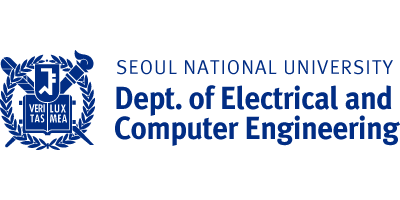Prof. Sang Kyun Cha, “Should even invest 100 billion won to bring home AI talents who will provide for 10 million people” (Maeil Business Newspaper, 20190702)
SNU Big Data Institute Director Sang Kyun Cha
An approaching AI era for everyone
A general trend for data science that applies AI to all industries
Should teach AI to experts in finance, manufacturing, and marketing to produce ‘ambidextrous talents’
Five years, 400 billion won should be invested to civilian research centers
Should form a ‘long term plan for AI’
◆ Raising ‘1000 geniuses’ in the AI field ⑤ ◆ 
“Imagine we have to leave a ‘decimated’ Earth as in the movie ‘Interstellar’. Each nation in the world is about to leave with its citizens. What if there are only tens of people capable of steering the spacecrafts? Won’t the countries be frantically trying to gather spaceship pilots(or pilot teams)? The competition among global companies and nations to attract top tier AI talents can be likened to this situation.”
Sang Kyun Cha, the Director of SNU Big Data Institute (and ECE Professor), thus explained how entities all over the world are desperately trying to gather AI talents. The AI revolution, which destroys and dismantles conventional industries and rebuilds, the ‘AI journey’, which the humankind has never before experienced, is just beginning.
AI will reshape so many things that it can be likened to ‘a situation where we must leave the Earth’, and no one will escape this big bang. The fates of companies and nations will come down to who will be quicker to secure AI talents. According to Director Cha, the number of top tier individuals who will be creating new values during the AI big bang is less than a hundred worldwide. They are being flooded with love calls from companies and nations all over the world. To attract them, exceptional wages are being promised, desired research environments are being created, and governments are coming forward to build new research centers. To persuade their family, residences are being provided, and schools for the children are being checked. Even the spouses’ jobs are being taken care of. These are exceptional offers that are unprecedented.
Director Cha is also in the midst of this war for human resource. In order to gather top faculty members for the SNU Data Science Graduate School, which is being established next year, he has repeatedly visited the U.S., sent emails, and asked for face-to-face talks. Although these people are already paid up to 10 times the annual salary of a professor in SNU, because of rigid domestic regulations, they cannot be offered terms as good as those presented by other countries.
Director Cha said, “These AI talents will bring food to 10 million people. I would like to bring them even if it costs 100 billion won.” Director Cha, who is trying to persuade Korean experts in the global arena to return to Korea, is he himself a target of scouting from governments and universities in other countries such as the U.S. and China.
He says that this war for talents is being waged because the era of AI is for everyone, not a handful of developers. The AI and data big bang is being merged with all fields including not only conventional industries such as manufacturing and finance, but also robotics, precision medicine, social science, and psychology, shaking the foundations of the preexistent system. Right now, it is of the utmost importance that we raise talented individuals knowledgeable in multiple fields. They must be people who are experts in their individual fields who are able to apply big data and AI technology to analyze and use data. It is not possible to survive with the current structure where experts in finance, manufacturing, and IT gather to collaborate. You cannot outrun a sprinter if you are doing a three-legged race.
Director Cha said, “Strictly speaking, ‘data science’, rather than AI, is the accurate term. Now is a time for domain science and data science to merge. We must select experts from each field, help them through intense sessions, and thus raise AI experts and data scientists. In that sense, what we need as future talents are ‘ambidextrous individuals’.” He says that ambidextrous experts are similar in concept to ‘T-talents’. The term refers to people who, on their left hand, have a tight grip on their own professional fields such as economics, business administration, and medicine, and on their right, are armed with data science and AI.
Director Cha’s primary goal is to make SNU Data Science Graduate School a cradle for ambidextrous talents. The first step is to gather the best faculty members. Top tier professionals are necessary to teach and raise ambidextrous experts, expand the horizons of data science, and share the profits of the AI big bang to all of society. He argues that with ten top tier talents, it is possible to raise a thousand geniuses. The thousand people will in turn train a million hands-on workers and will provide for all of our citizens.
However, Director Cha is conscious of the potential crisis of being left behind in the global competition at this rate of progress. With IT as its strength, Korea has taken a major portion of markets and technology and has maintained its competitive edge. In recent years, however, things have completely changed. We have already lost the head start in AI. The U.S. has completed an AI ecosystem with major IT companies such as Google, Amazon, and Apple, and technical startups. China is already sucking in talents from all over the world like a blackhole. Japan has even changed its educational system to teach everyone AI.
“We started far earlier than Japan and accumulated experience, but Japan is chasing after us systematically at a high speed. In the U.S. as well, 1500 undergraduate students attend data science lectures in UC Berkeley alone. That’s how fast ambidextrous talents are being raised. Korea is simply standing there, unable to do anything,” said Director Cha.
Director Cha also argues that the recent conflict between the U.S. and China is a contest over the hegemony in innovative technology including AI. According to the Institute of Information and Communications Technology Planning and Evaluation, the AI technology gap between the U.S. and other countries has widened. In 2016, for Korea and China, it was 2.2 years and 2.3 years, respectively. In 2017, it was 2.3 years and 1.9 years each. Authorities deem that China, has already surpassed Europe, which had a one year gap compared to the U.S., and is right behind the U.S. The entire world is sprinting with all its might, but Korea has yet to start.
SNU Data Science Graduate School has a meager quota of 55 students (40 Masters, 15 Ph.Ds). Fifteen faculty members are assigned, and 2.26 million won will be invested, but this is insufficient. Outside SNU, three places including KAIST, Sungkyunkwan University, and Korea University, with government support, will establish AI graduate schools, but even if the numbers are added from all four places, only 200 people can finish their education each year. Director Cha made an appeal, saying, “Both technologies and services are created by people. If we do not raise AI talents, the gap will widen further and we will be left behind. Time is running out.”
While the Data Science Graduate School raises talented individuals, there is also a desperate need for ‘think tanks’ that will create Korea’s AI growth engine. Director Cha pointed to civilian research centers that are quick to act like ‘startups’ as ideal models. He meant that there had to be organizations with freedom to conduct research and commercialization that cannot be done by preexisting research environments such as government funded research centers and universities due to regulations and conventions.
John Hennessy, the Chairman of Google Alphabet, formed an environment for creative research and development and created the Silicon Valley of today by securing civilian funding when he was president at Stanford University from 2000 to 2016. Microsoft co-founder Paul Allen, who passed away last year, invested 1.25 million dollars (approximately 145 billion won) to found ‘Allen Institute for Artificial Intelligence (AI2)’, which is a lead player in AI research projects that has become his greatest legacy. Experts say that the solution to the gap in global technology is for civilian research institutes to similarly take initiative in Korea.
The problem is time and money. Director Cha said, “A research center can, with 5 years and 400 billion won, arm Korea with weapons with which to battle in the global war. After five years, independently developed business models acquire the ability to stand alone and a perfect AI ecosystem can be created.”
Director Sang Kyun Cha is a top Korean researcher in data science and to whom all the world is paying attention. He graduated SNU EE, and acquired a Ph.D. in ECE (Database, AI, natural language processing) at Stanford University, the U.S. In 1992, he was appointed to his office at SNU and started research in in-memory big data technology. He developed the HANA platform, and released it to the global market through a company called SAP. He thus led a paradigm shift in the global market of big data.
Source: http://ee.snu.ac.kr/community/news?bm=v&bbsidx=49023
Translated by: Jee Hyun Lee, English Editor of Department of Electrical and Computer Engineering, jlee621@snu.ac.kr


